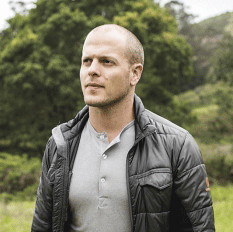 The Chronicle of Philanthropy reports that best-selling author, podcaster, and investor, Tim Ferriss, who is now 42, disclosed that his decision to devote his philanthropy to research into psychedelic drugs is built on a solid foundation of peer-reviewed science. "I’ve spent hundreds of hours interacting with researchers to get a better understanding of the science," he says. It is also very personal. Ferriss’s best friend from childhood died of a fentanyl overdose and his aunt, after injuring her shoulder, became addicted to Percocet and alcohol and died last year. Ferriss himself struggled with depression and anxiety as a college student at Princeton. He tried "magic mushrooms," which contain psilocybin, and found relief. "I was able to finally see things clearly," he says, "to appreciate all of the incredible chance blessings that I experienced in my life." So, Ferriss decided to help fund research at John Hopkins to see if psilocybin-assisted therapy could treat opioid addiction. Ferriss is quick to caution that no one should experiment with illegal drugs under uncontrolled circumstances. But like many, if not most, of the donors to psychedelic science, his passion is driven both by the head and the heart. Usona founder Bill Linton, Cody Swift of the Riverstyx Foundation, and David Bronner, who leads Dr. Bronner’s, which makes organic personal-care products, have all experienced or seen up close the healing potential of psychedelics. Donors are also motivated because, they say, conventional treatments for the pain caused by PTSD, depression, anxiety, and addiction often fall short. Drug overdoses killed more than 70,000 Americans in 2017, which is more than the number who died during the entire Vietnam War. "These compounds are by no means a panacea," Ferriss says. "But they show tremendous promise for serious conditions that currently have few or no effective treatments." Ferriss has formed a foundation and pledged $2 million of his own money to fund psychedelic science. "Having done a few years of due diligence," he adds, "I’ve decided to push all my chips in." Other major donors include David Bronner and his family, which owns Dr. Bronner’s, a company that makes organic personal-care products; Bill Linton, the founder and CEO of life sciences company Promega, who started a nonprofit to secure government approval for psilocybin to alleviate depression; Rebekah Mercer, whose concern focuses on veterans with PTSD; and the children of the late Richard Rockefeller, former chair of the Rockefeller Brothers Fund, who was a passionate advocate for the research. Others supporting the research include the foundation of Facebook co-founder Dustin Moskovitz and his wife, Cari Tuna; the foundation of Nick Pritzker, a venture capitalist and the former president of the Hyatt hotel chain, and his wife, Susan; George Sarlo, a Holocaust survivor and founder of an investment firm; the entrepreneur Elon Musk; Groupon co-founder Andrew Mason; and an anonymous Bitcoin millionaire known only as Pine, who says his philanthropy was inspired by a drug trip. It’s all the more remarkable because the drugs being studied — primarily psilocybin, which comes from so-called magic mushrooms, and MDMA, the active ingredient in street drugs known Ecstasy or Molly — are not only illegal but designated, along with heroin and fentanyl, as Schedule 1 drugs by the Drug Enforcement Administration, a classification reserved for substances thought to have a high potential for abuse and no currently accepted medical use. For more info on studying psychedelics, click here.
0 Comments
Leave a Reply. |
BLOGArchives
January 2025
Categories
All
|